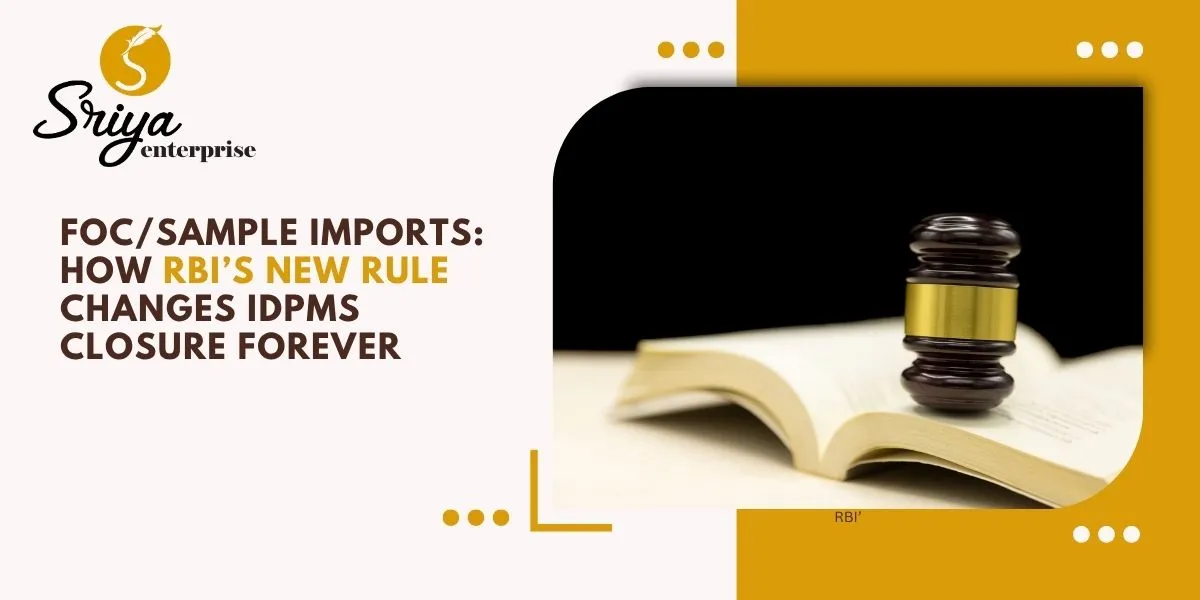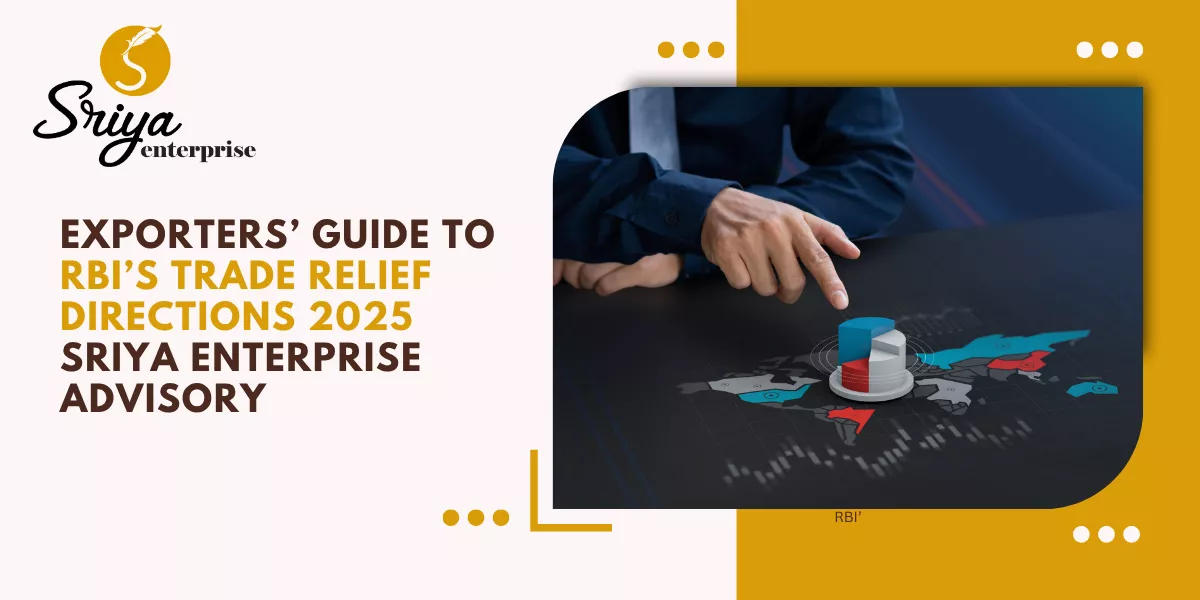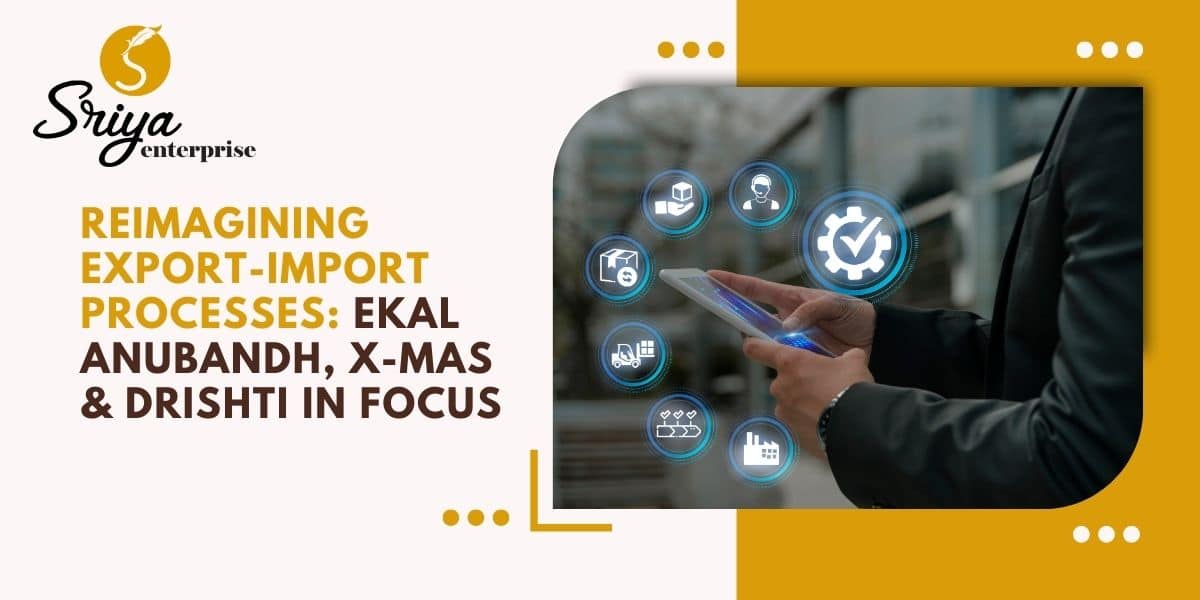In a proactive move to shield Indian exporters from the adverse effects of ongoing global…

RBI Update: Closing Bills of Entry for Free of Cost (FOC)/Sample Imports – Issues and Implications
The Reserve Bank of India (RBI) has issued a significant regulatory update changing the way Bills of Entry (BoE) for goods imported on Free of Cost (FOC), No Commercial Value, or Sample basis are handled in the Import Data Processing and Monitoring System (IDPMS).
What’s Changing?
Earlier Process
Authorised Dealer (AD) Category-I banks had to send BoEs related to FOC/No Commercial Value/Sample imports to RBI Regional Offices for approval before closure in the IDPMS system. This made the process longer and dependent on regulatory clearance.
New Rule (29 September 2025)
Now, AD banks themselves can directly close BoEs in IDPMS for imports received on FOC, No Commercial Value, or Samples. Closure will be based on banks’ due diligence and their own assessment of the bona fides of the transactions, without needing RBI’s prior approval.
In simple terms, Banks now have the delegated authority to close these import entries, making the system faster and more efficient.
Why This Matters
While the change improves efficiency, there are several issues exporters, importers, and banks must be cautious about:
Pending FOC entries clogging IDPMS
Many importers have old FOC/sample import bills lying open in IDPMS, leading to mismatches during compliance reconciliations.
Non-closure of these entries often reflects as outstanding import obligations against the importer, resulting in FEMA compliance risks.
Over-reporting of liabilities
An open BoE in IDPMS may project higher outstanding import data compared to actual financial transactions.
This distorts the balance of imports vs. remittances, raising audit and investigation queries.
Compliance Burden on Importers
Importers are often asked by statutory auditors, banks, and regulators to explain why FOC/sample imports remain open, despite no actual payment obligations.
This creates unnecessary correspondence and compliance overheads.
Bank Workload and Subjectivity
With authority now delegated to AD banks:
Banks must exercise greater judgment in assessing bona fides.
Different banks may interpret documentation requirements differently, leading to inconsistency.
Importers may face repeated queries if adequate supporting documents (supplier letters, invoices marked as FOC, customs-stamped BoE, etc.) are not provided.
Risk of Misuse
Importers might misuse FOC/sample channels to undervalue actual imports or bypass payment obligations.
Hence, banks must ensure due diligence instead of treating this as a mere routine closure process.
- Practical Challenges Importers Face with FOC BoE
- Customs requires clear marking of Free of Cost/Sample on invoices and BoE filings.
- Any mismatch between customs BoE and supporting shipment documents (like airway bill/shipping bill) often raises compliance queries.
- Non-closure of these entries can cause delays in future remittances since IDPMS reconciliation is mandatory before outward remittance approvals.
- Frequent follow-ups with banks add administrative hassle.
Impact of RBI’s New Rule
This move is aimed at:
Reducing RBI’s administrative burden of handling approvals for routine FOC/sample closures.
Speeding up the closure process since banks can now act faster within IDPMS.
Enabling better importer experience, as pending obligations can be cleared without long delays.
But on the flip side
Banks bear greater accountability to ensure transactions are genuine.
Importers must be extra careful in ensuring customs compliance with proper FOC declarations and documentary support.
Best Practices for Importers
Always ensure “FOC” or “Sample – No Commercial Value” is clearly written on invoice, packing list, and Bill of Entry.
Maintain supplier’s declaration confirming goods are sent free of charge/sample.
Keep customs-stamped BoE copies along with shipping documents properly filed.
Respond quickly to AD bank queries for smooth closure in #IDPMS.
Avoid excessive reliance on FOC imports, as repeated instances may attract regulatory scrutiny.
Final Word of Caution
The #RBI has delegated closure powers to banks, but this does not mean slackness in compliance. Importers should not treat Free of Cost or Sample imports as a casual trade practice. Both customs and# FEMA regulations expect only genuine transactions to be routed via #FOC bills, with full transparency.
This update should be seen as an ease-of-doing-business measure, but with associated responsibility for both importers and banks.
Sriya Enterprise specializes in Trade Finance and FEMA advisory, helping importers and exporters navigate RBI, customs, and IDPMS regulations for Free of Cost (FOC) and Sample imports. With expertise in documentation, compliance audits, and regulatory updates,
For businesses seeking peace of mind and compliance efficiency under the new RBI guidelines, Sriya Enterprise acts as a trusted partner, ensuring your FOC/Sample BoE closure is both fast and regulation-proof.




